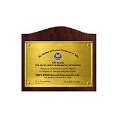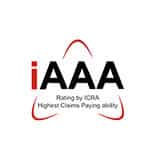

Everything You Need to Know About Thiamine Deficiency
Thiamine (vitamin B1) is one of the eight essential B vitamins your body needs to stay healthy. It is essential for energy production and nerve function. Like other B vitamins, thiamine is water-soluble which means that it dissolves in water and isn’t stored in body, so you need to ensure to get enough of it from your daily diet to avoid it’s deficiency. Fortunately, thiamine is naturally found in variety of food items. Read on to learn more about thiamine deficiency , causes, the associated symptoms, and list of food rich in this vitamin.
What is Thiamine Deficiency?
Thiamine deficiency (also called Vitamin B1 deficiency) is a condition that occurs when the body does not get enough thiamine, an essential nutrient required for energy metabolism , nerve function, and the proper functioning of the heart and muscles.
The condition is more common in places where people don’t eat enough whole grains, legumes or fortified foods. It’s also seen in people with conditions like chronic alcoholism, where absorption is affected, or in those who are on long-term diuretics or dialysis.
Why is Thiamine Important?
Thiamine helps convert carbohydrates into energy and is especially important for the brain and nervous system. It acts as a co-enzyme in several metabolic processes, primarily in the production of ATP (the body’s energy currency).
Causes of Thiamine Deficiency
1. Poor dietary intake
2. Chronic Alcoholism as it interfers with thiamine absorption and storage
3. Certain medical conditions such as HIV/AIDS, cancer
4. Dialysis
5. Diarrheoa
Symptoms of Thiamine Deficiency
The symptoms can start off small but get serious if left untreated. Here are some common thiamine deficiency symptoms:
• Fatigue:
You may feel constantly tired or lacking energy, even after resting well. This happens because your body struggles to turn food into usable energy without enough thiamine.
• Loss of appetite:
Many people notice a sudden disinterest in food, which may lead to weight loss. It can also come with nausea or a feeling of fullness after just a few bites.
• Tingling sensation:
A pins-and-needles feeling, especially in your hands, feet or legs, may be a sign that your nerves are being affected.
• Nerve damage:
As deficiency progresses, it can lead to nerve pain, muscle weakness or a loss of coordination, especially in the legs.
• Blurry or double vision:
Some people experience trouble focusing their eyes or blurred vision, which may be linked to damage to the optic nerves.
• Balance problems:
You may feel unsteady when walking or have trouble keeping your balance, especially in the dark or on uneven surfaces.
• Short-term memory issues:
Forgetting things you just heard or said becomes common. This symptom is especially noticeable in more advanced cases.
• Delirium:
You may feel deeply disoriented, struggle to think clearly or have difficulty recognising people or places around you.
Treatment
Diagnosis of thiamine deficiency is based on clinical symptoms, blood tests for thiamine levels, and response to thiamine supplementation. Treatment options include:
1. Thiamine supplementation (oral or intravenous, depending on severity)
2. Addresing the underlying cause such as stopping alcohol consumption, improving nutrition intake
3. In case of medical emergencies, high-dose of IV thiamine is administered immmediately
Prevention
To prevent thiamine deficiency, eat a balanced diet with foods rich in thiamine. Here’s a list of Vitamin B1 rich foods-
A) Animal-Based Sources such as pork, liver, fish (e.g. tuna, trout, mackerel)
Conclusion
Thiamine may not be talked about as much as other vitamins, but it plays a key role in keeping your body energised and your nervous system in good shape. Because it isn’t stored in the body for long, getting enough thiamine every day through food or supplements is important, especially if you are at higher risk.
If you notice symptoms like fatigue, tingling sensations or coordination issues, it's best to consult a doctor. Catching it early makes it easier to treat and prevents long-term complications. Having a good health insurance plan ensures that you can access the care, tests, and treatments you need without financial stress.
One of the important components of our overall wellness is also being financially secured. Healthcare emergencies can happen any time, but a good health insurance policy can protect you from such uncertain situations. To know more about Wellness and other health related tips, visit the wellness corner.
Disclaimer: This blog provides general information and discussions about health and related subjects. The information and other content provided in this blog, website or any linked materials are not intended and should not be considered or used as a substitute for medical advice, diagnosis or treatment. Kindly contact your doctor before starting a new medicine or health regime.
Related Articles
Types of Vitamins and their Functions
Essential Vitamins and Supplements for Healthy Ageing
40 Vitamin E-Rich Foods for a Healthier Diet
Health Benefits of Vitamin C Supplements
Vitamin B12 Rich Fruits, Foods and Vegetables in India
Published on July 8, 2025















 Health Insurance
Health Insurance  Travel Insurance
Travel Insurance  Car Insurance
Car Insurance  Cyber Insurance
Cyber Insurance  Critical Illness Insurance
Critical Illness Insurance
 Pet Insurance
Pet Insurance
 Bike/Two Wheeler Insurance
Bike/Two Wheeler Insurance  Home Insurance
Home Insurance  Third Party Vehicle Ins.
Third Party Vehicle Ins.  Tractor Insurance
Tractor Insurance  Goods Carrying Vehicle Ins.
Goods Carrying Vehicle Ins.  Passenger Carrying Vehicle Ins.
Passenger Carrying Vehicle Ins.  Compulsory Personal Accident Insurance
Compulsory Personal Accident Insurance  Travel Insurance
Travel Insurance  Rural
Rural